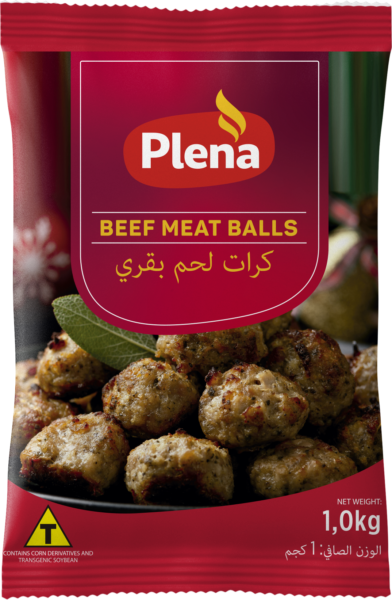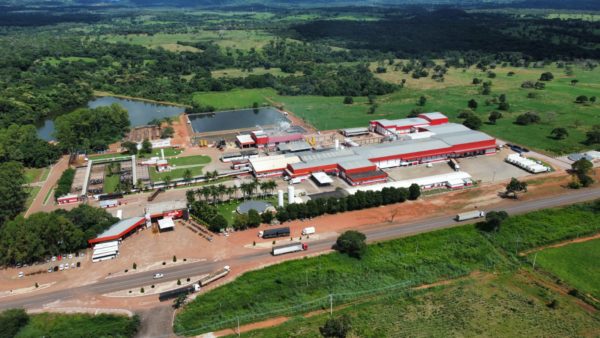São Paulo – A company that has sold frozen and chilled beef for over 30 years in the domestic market started exporting in 2013 and now ships to over 50 countries. This is Plena Alimentos, based in Contagem, Minas Gerais, with plants in Pará de Minas, Minas Gerais, Porangatu, Goiás, and Paraíso do Tocantins, Tocantins.

The Brazilian firm ships to nearly all Arab countries, has been halal certified since 2015 and is diversifying its product range, investing processed items like mince and meat balls for the foreign market.
Coordinator Beatriz Maia and Export Manager for Middle East & North Africa (MENA) Mohamad Sus talked to ANBA. They said Plena ships to Arab states across all regions from North Africa to Levant and the Gulf. “We currently cater to Egypt, Libya, Tunisia, Palestine, Jordan, Lebanon, the United Arab Emirates, Saudi Arabia, Bahrain, Oman, and Qatar,” said Sus.
Plena Alimentos joined the latest editions of Gulfood, a food and beverage trade show in Dubai, where it launched new items like halal mince and halal meat balls. “For Plena, this is a very important show, and we came back from it full of new business, as these shows are no longer regional, and people from around the world visit them,” said Maia.
“Before we were accredited for China in 2019, the Middle East accounted for 50% of our exports. After China, this share has shrunk, but [the Arab world] is still key for our business,” said Sus. One of Plena’s plants is accredited to sell to China. The manager said the Asian giant has some restrictions and doesn’t buy any product. It requires for instance that the slaughter is held before 30 months of ages.
More sales to Arab countries
Beatriz Maia said Plena intends to widen the product mix for the Middle East and has a Research & Development team working on products that could boost its sales to the region. “It’s a very relevant market, and we want to step up our presence and develop more industrialized products as way to diversify our range,” she said.
The Arab countries that currently buy the most products from Plena are Libya, Saudi Arabia, and the UAE. Sus explained that the situation was once different. “The market has fallen sharply in the Levant. Lebanon, for instant, has suffered from a series of problems, like political and economic crises, and beef consumption has declined in the country as a result,” he said.
“Iraq is a country that buys a lot, but the beef is exported to Turkey and reaches the northern Iraq via land,” he said. “To be successful in the Middle East you have to know the market, your clients, the customs. We manage to deliver a customized service,” said Sus.
In addition to the Arab countries, the halal-certified Brazilian firm caters to many non-Arab Muslim-majority countries and countries with Muslim populations.
The moment of processed goods

On the processed products of the brand, Beatriz Maia explained that the trend is that the items are sold closer and closer to consumption. “People don’t have time, and we want to cater to these people that want to buy meat but don’t have time to buy a 5-kg piece, for instance. They like to vary their diet, buying a 1-kg pack of mince. The goal is delivering a wider range of products for this consumer that have less time,” she said.
Overseas, Plena works with importers and distributors that sell to the industry, food services, and supermarkets, thus providing for the whole chain.
The livestock
Plena works with three systems of livestock supply. “Our own cattle, those of our partners who supply all year round, and cattle from the cash or spot market,” said Maia. Frozen and chilled pieces like filet mignon, topside and brisket are exported.
Pet snacks
The firm sells various beef products in the domestic market and is launching a pet snack line dubbed Petsko Snacks Naturais, manufactured in its Tocantins plant. The snacks are made from beef parts like ear, bones and esophagus, and some of them has already been sold to the United States. “It’s a booming industry. We started last year, and this month we’re launching the Petsko brand in the domestic market,” said Maia.
Translated by Guilherme Miranda




